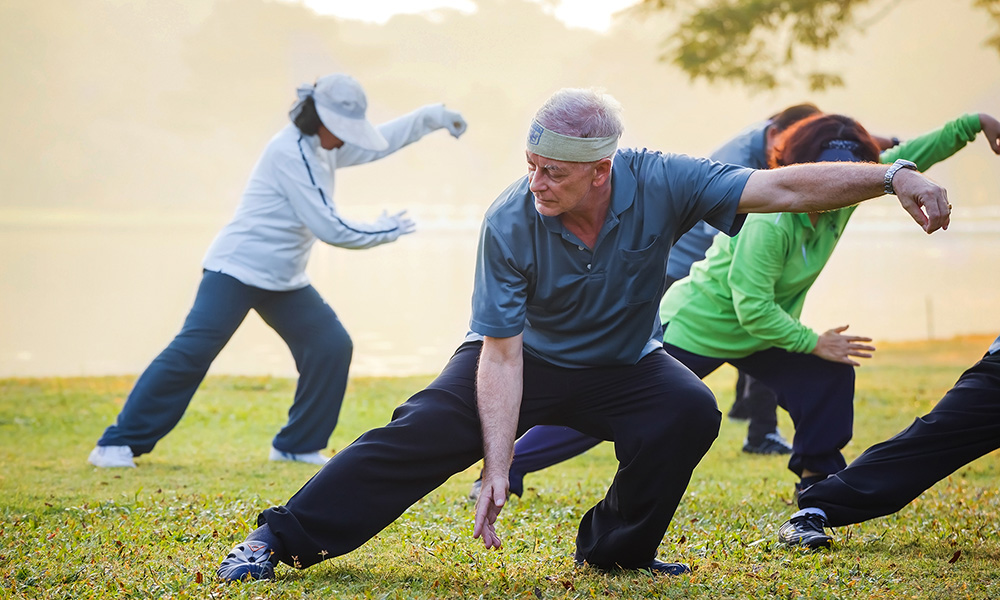
The many benefits of Tai Chi
Ever heard of or seen someone practising Tai Chi? While the measured movements of this ancient Chinese martial art may seem too easy-going to make a significant difference to your health and wellbeing, its numerous benefits include improved balance, increased flexibility and diminished depression and anxiety.
What is Tai Chi?
According to Mayoclinic.org, Tai Chi is “a noncompetitive, self-paced system of gentle physical exercise and stretching” that “involves a series of movements performed in a slow, focused manner and accompanied by deep breathing. Each posture flows into the next without pause, ensuring that your body is in constant motion.”
In an interview with the University of Toronto’s Faculty of Medicine, Darlene Reid, one of the authors of a study that examined the impact of Tai Chi on four chronic conditions noted that it, “has been shown to be consistently effective towards improving quality of life, increasing muscle strength, walking distance, balance and coordination in people with heart failure, osteoarthritis and chronic obstructive pulmonary disease.”
Here are some of the other ways this life-changing discipline could benefit you.
1. Helps prevent falls
Falls are one of the leading causes of injury in seniors and can be seriously debilitating, especially if you live alone. Studies have shown that Tai Chi could reduce falls in older adults by as much as 45 percent. In fact, one study showed that when compared to stretching exercises, Tai Chi was 58% more effective in reducing the risk of falls. Another study published in the New England Journal of Medicine, noted that “Tai chi training appears to reduce balance impairments in patients with mild-to-moderate Parkinson’s disease, with additional benefits of improved functional capacity and reduced falls.”
2. Alleviates joint pain
Given that the movements associated with Tai Chi are extremely low impact, they don’t place any strain on or affect your joints. In fact, according to WebMD.com, the body’s position while executing these movements – slightly bent knees and hip joints – “strengthens leg muscles that help support and protect your joints,” while the slow, steady circular movements “play a key role in keeping your joints moving so that they don’t become stiff from lack of movement.”
3. Eases stress
Tai Chi incorporates meditation and deep breathing, which are often associated with a reduction in levels of stress and anxiety. A recent study, published in the Journal of Clinical Psychology, put healthy individuals suffering from stress through a 12-week Tai Chi programme and found the discipline to be “a viable approach to reducing stress that is both safe and cost effective.”
4. Improves Sleep
One study published in the Journal of the American Geriatrics Society found that those who performed Tai Chi fell asleep 18 minutes earlier than those who did not and slept for an additional 48 minutes each night.
Remember: If you’re thinking of starting a new form of exercise, it’s important to chat to your GP and get the all clear before you begin.



